
The Shantar Islands in the Sea of Okhotsk offer some of Russia’s best whale watching. Our travel expert Kseniya Rubtsova has traveled to this wild region to check if it is true. Here is her story:
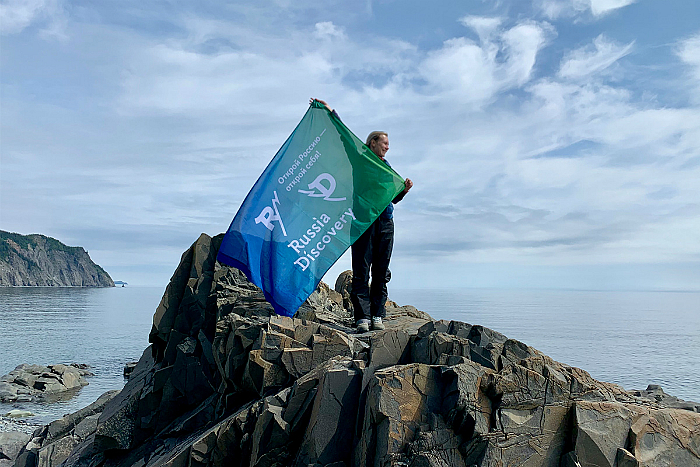
“A trip to the Shantar Islands is definitely the most exciting adventure in my life! I have visited many places both abroad and in Russia, however it was the Shantars where emotions were overwhelming. I'll tell about my most vivid impressions.
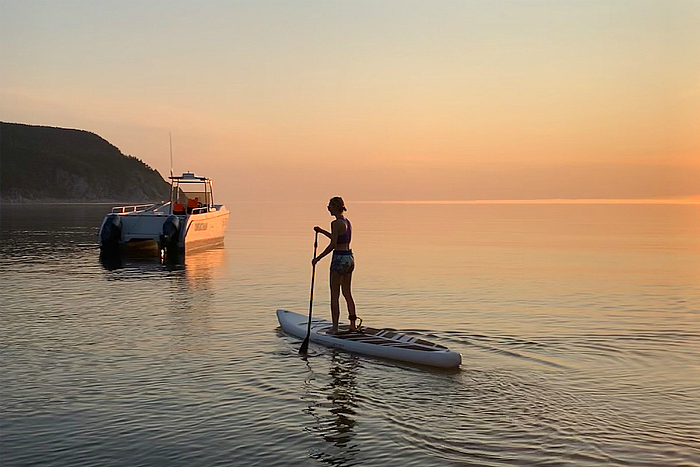
A whale at my SUP board
I was swimming in the bay on a SUP board when I saw something looking as a small island in the distance. To my surprise, it disappeared for a moment and then came into view again.
Suddenly our guides shouted from the shore : “Kseniya, whale! Grab a life jacket, swim to it! "
At first I just couldn't believe it: "Is it real? Truly? Me? Swimming with a whale?" Then the chief guide reached me and reminded that the minimum safe distance between a human and a whale is 10 meters. Otherwise there is a danger of being knocked out to the sea if the animal whisks its tail. Together with the guide we came closer to the whale, and listened to its breath and observed the moves of the tail under the water. This was an incredible feeling; I had goosebumps on my skin. You realize that there is such a huge animal just next to you, and you feel yourself so small.
Bear 5 meters away
We also saw bears several times when we were on the Ongachan base. Once the animal was 5 meters away from us. It was the guide's dog who had noticed the bear first and started barking. It seemed that the bear was observing us for some time before we noticed it.
No one was scared, as we had an experienced guide with us, who immediately started to shout, forcing the bear to run away. I was happy the guide didn't need to use his gun. It was a great experience; before I've seen bears so close only in a zoo. .
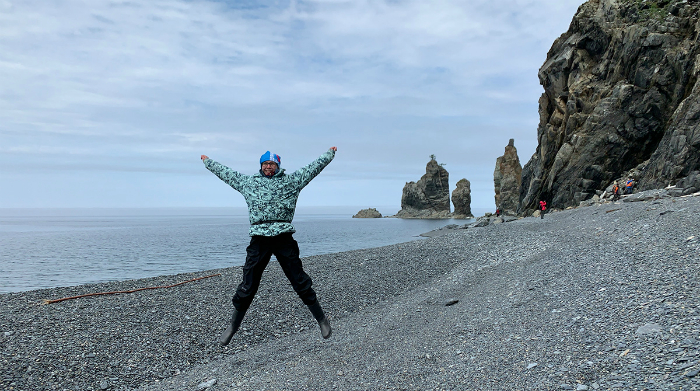
Long-awaited whale tail
It was the last day of our trip and we've already seen whales, but they didn't want to show their tails (for which we all were waiting for), just heads and backs.
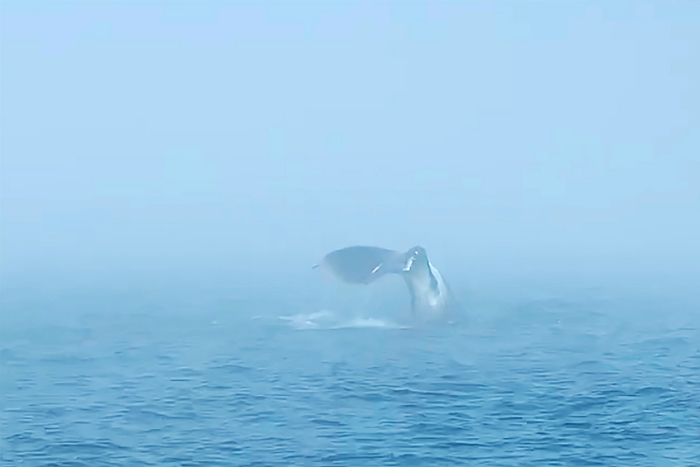
That day, we were moving from Wrangel Bay to Nikolay Bay by catamaran. Suddenly I noticed an ‘island’ that was getting in and out of the sea. By that time, I knew it could be a whale.
I shouted: “Whale, whale!", and we approached the animal as close as possible. The giant took its head out of the water, then the fin appeared and — at last — the long-awaited tail came into view!
The emotions were overwhelming, tears were in our eyes. On the last day of the expedition the whale showed its tail, as if it waved goodbye to us.
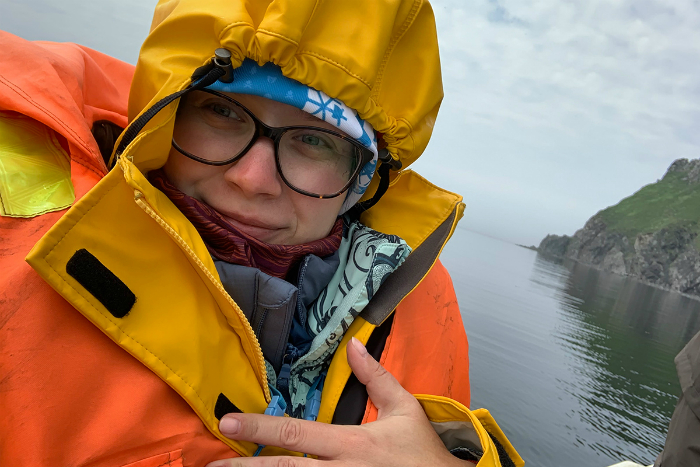
Things to pack
The weather on the Shantars changes quickly. To stay warm and enjoy all the activities, we recommend you to take the following things:
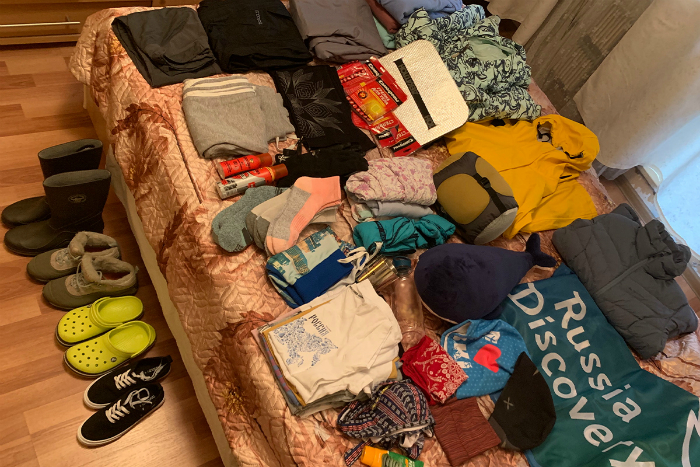
I had used all these things during the trip. My luggage weight was 18 kg, but I knew that each item I took would be necessary.
When at sea put on all the warm clothes you have. While standing on the shore, it’s difficult to understand what the weather is like at sea; there might be a great difference between the weather at sea and on the shore. Also, it’s better to wear all the layers before going to sea, as it might be not easy to put on something in a boat. While it’s not a problem to remove a layer if you are hot.
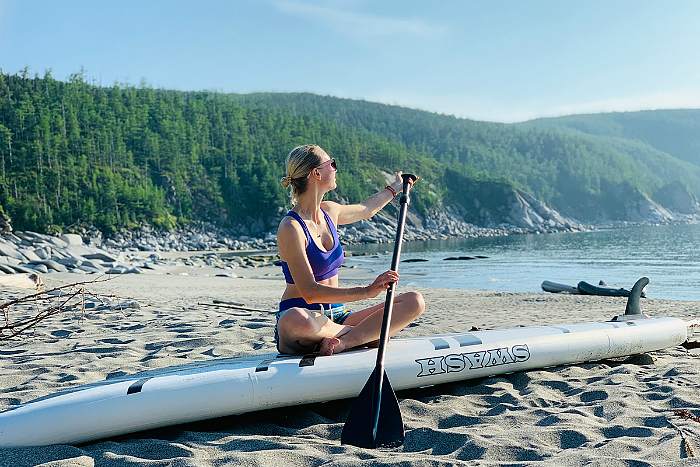
Why expedition travel is not the same as ‘classic’ trips
I believe that the Shantar Islands are for adventure travelers. Remoteness, harsh conditions, unstable weather — if you accept all these, the islands will reveal their wonders for you.
All the activities and wildlife encounters are not guaranteed and depend on nature. Guides do everything to offer travelers maximum opportunities to explore the fantastic world of the islands.
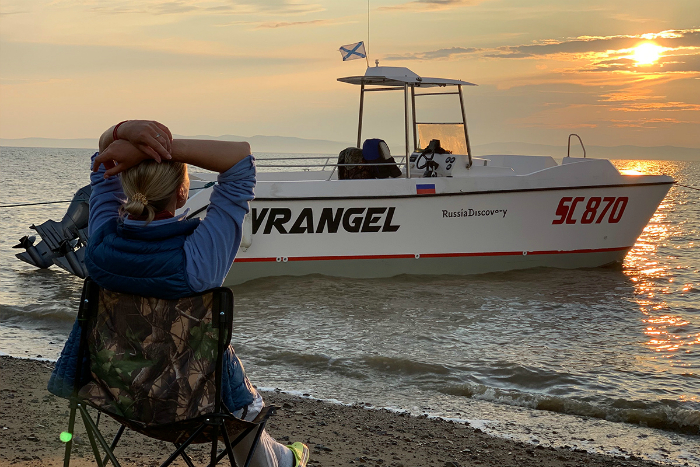
I traveled to the Shantars in early July. It’s a season when whales are just starting to come to the archipelago. We had seen some whales at the beginning of the trip, but on the other days we were not so lucky. During our stay at Ongachan Bay, we knew they were nearby: we heard their breaths, but could not see them in the fog.
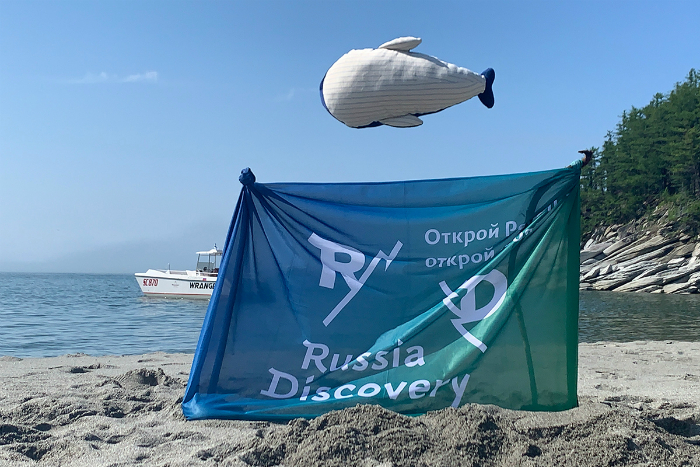
While cruising, we haven't met whales, but we saw seals and birds: rare Steller's sea eagles, puffins, gulls, as there are large bird colonies on the Shantars.
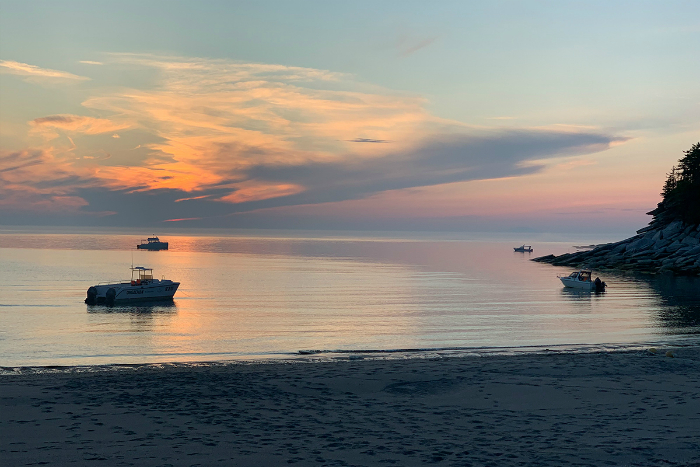
If you meet whales at the beginning of a trip, enjoy the encounter in full — take pictures, observe their behavior, fill your memory with emotions. Nobody can guarantee that you would "catch" the whales in the following days. This is what is valuable — the feeling of catching the moment.
If you are one of those who are ready to discover the Shantar Islands, join our Whale Bay trip. If you have any questions, write to us at go@russiadiscovery.ru or call +7 (495) 241-36-74